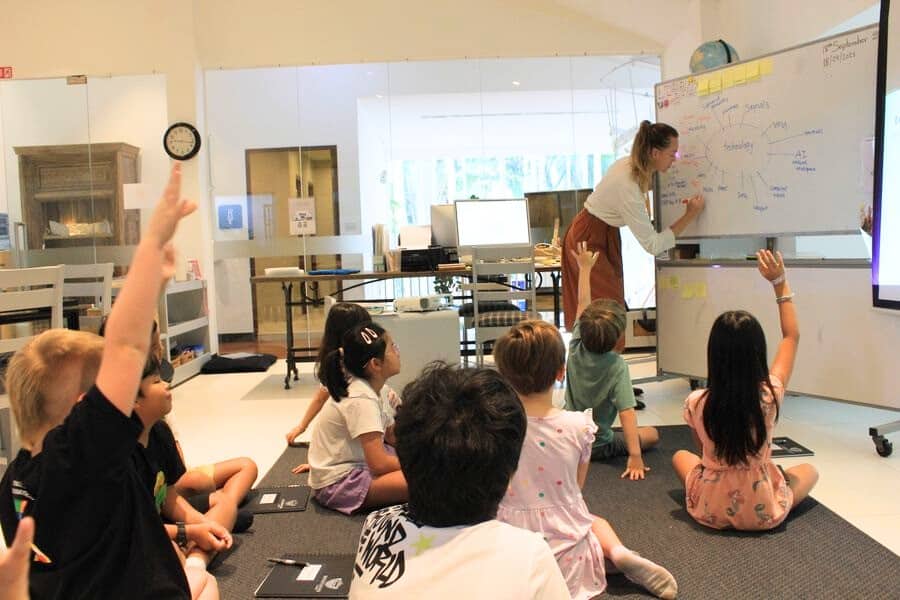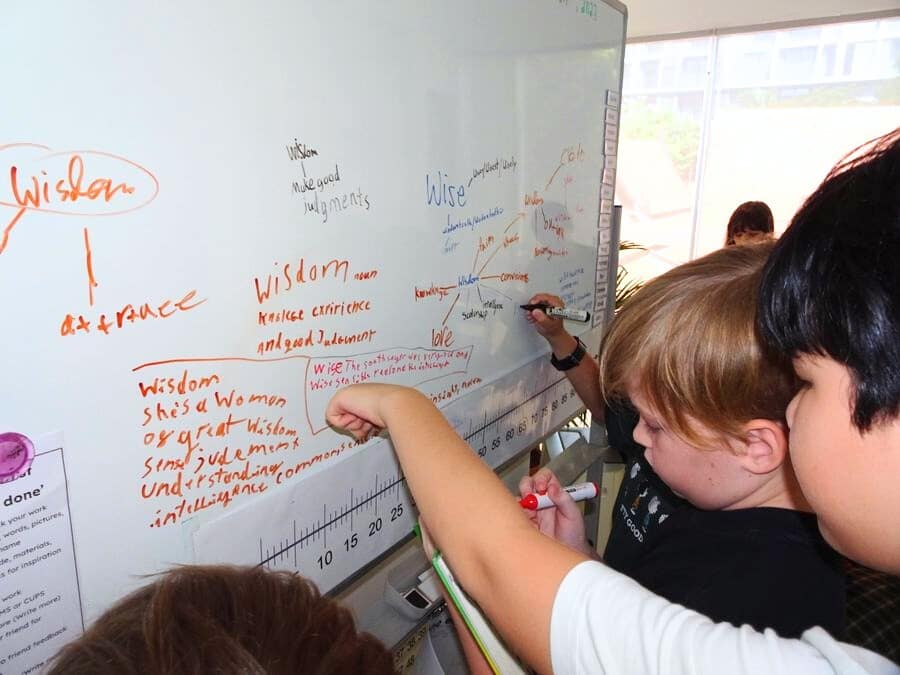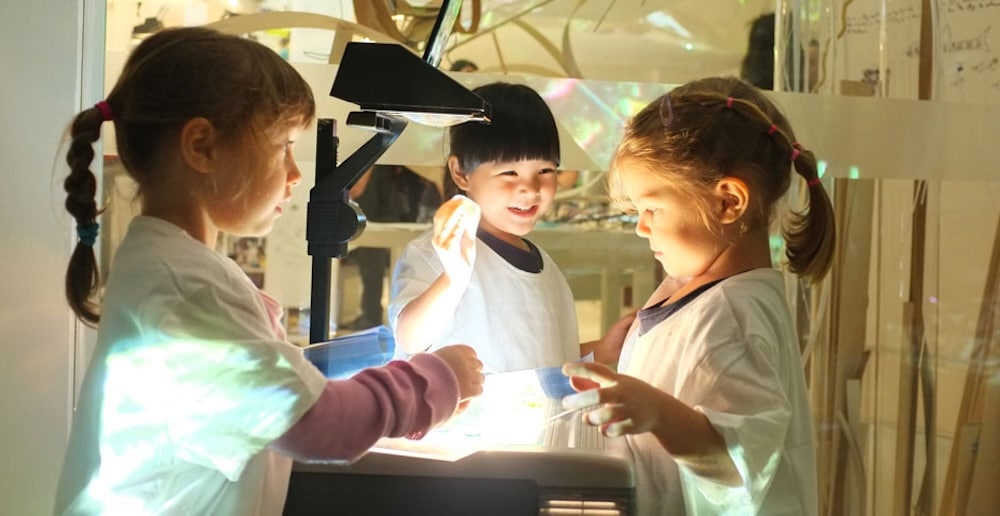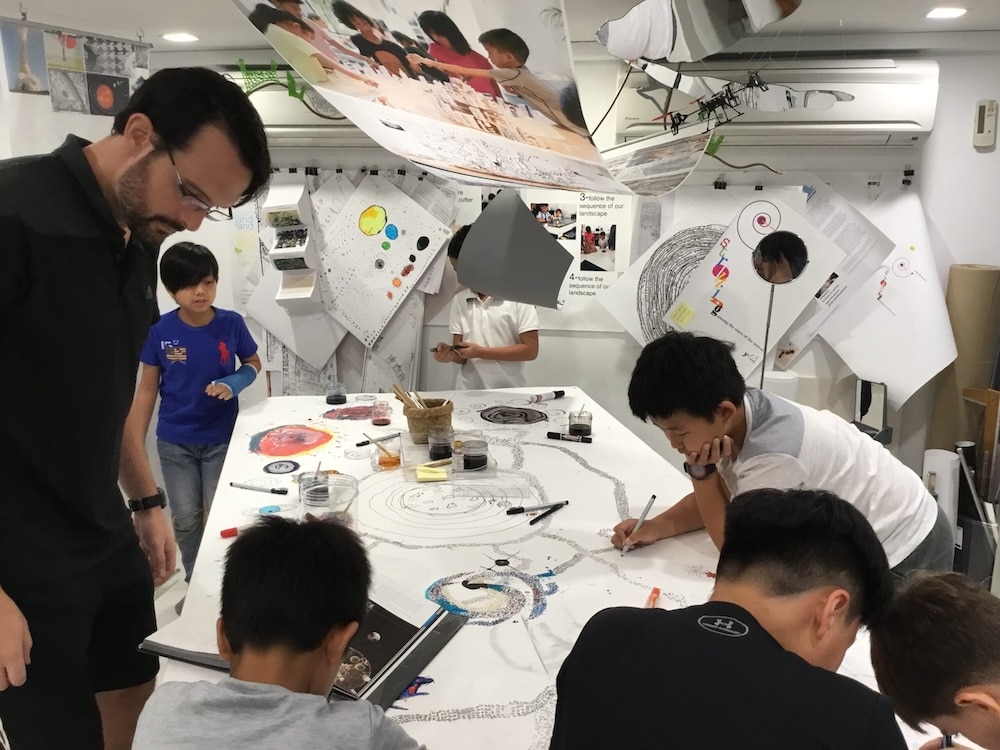‘Nothing without Joy.’ These words from Loris Malaguzzi are the heartbeat of teaching and learning at ELC International Schools in Thailand. We believe that high quality learning is a joyful collective journey and helps cultivate the dispositions, capabilities, and aspirations of children for them to unlock their full potential and become impactful global citizens.
The process of learning is valued as children engage in creative and collaborative exploration and inquiry; they set goals, they develop a growth mindset, think critically, and engage in meta-cognition and innovation. ELC achieves this through a beautiful symbiosis; we follow the curricular goals of the Ontario (Canada) Curriculum, while the Reggio Emilia approach to education inspires the implementation of these goals. The Ontario Curriculum can boast excellence in terms of its high PISA scores (OECD’s Programme for International Student Assessment), and has recently updated its framework in Math (2020), Science and Technology (2022) and Language Arts (2023) to equip children with the necessary skills to thrive in an ever-changing world.
Ontario Curriculum
But more than this, the Ontario Curriculum is one that works in harmony with ELC’s pedagogical vision. From the Kindergarten level, Ontario’s programme is aligned with ELC’s Reggio-inspired approach in terms of its belief that every child is competent, powerful, and full of potential, and the importance it places on learning through relationships, exploration, play and inquiry. The Ontario Curriculum provides a rigorous academic framework without being prescriptive; it is flexible and open to allow for contextual interpretation regarding how curricular expectations are achieved.
So here at ELC we develop our own programme of learning that is unique to our vision. Our high-quality teachers and staff prioritise conceptual exploration; we believe that children grow as learners by building their understanding rather than rushing the acquisition of skills through memorisation, for instance. To adapt and thrive in an increasingly complex world, children need the capacity for deep conceptual thinking that invokes the imagination, creativity, empathy, and meaning-making.
Project-based Learning
To this end, we place integrated concept development at the centre of our learning programme in our international school through our yearly Project – and progressively so as children move through to Upper Primary. This brings together all the curricular disciplines and evolves in response to both the children’s ideas and curiosity, and to the curricular goals.
Our approach within Project is for children to develop reasoning and research skills that can be used to investigate the unknown while co-constructing core knowledge. Foundational skills are explicitly developed across the Language Arts, Mathematics, IT, Science and Technology and are taught through a collaborative, problem-solving approach with the curricular expectations in mind.
These skills can be applied within the context of Project. Taking mathematics as an example, we build foundational skills through ‘math strings’, designed to first develop number sense – including accuracy, efficiency and flexibility with numbers. Problem-solving lessons are where the exploration happens: we start with an open question, such as ‘how many fingers are in the classroom’? (Y2) This question allows for diversity of thinking, an entry way in for every child, and decision making about the problem and well as the solution, and then it can be ‘mathematized’.
In one of our Upper Primary Projects, we can see how mathematics is integrated in the learning process. The children investigated the multifaceted concept of ‘Journeys’ using cartography. This allowed them to draw on a range of mathematical processes such as spatial sense and measurement, the aesthetic and humanistic qualities of mathematics, as well creatively explore connections to other disciplines.




